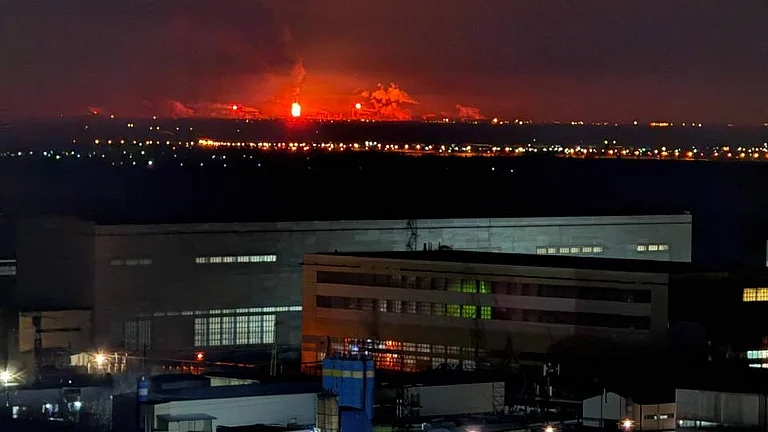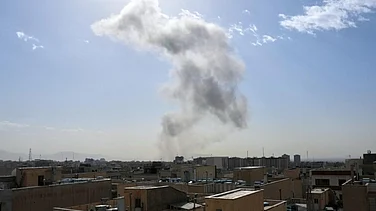Six Nato countries have agreed to build a "drone wall" along their borders to defend against Russian aggression and hybrid attacks. Norway, Poland, and Finland will work with Estonia, Latvia, and Lithuania to prevent Russian provocations, including forced migration across borders.
The move comes as Nato countries bordering Russia have grown increasingly nervous about President Vladimir Putin's intentions, particularly if he succeeds in Ukraine.
The North Atlantic Treaty Organisation, also called the North Atlantic Alliance, is an intergovernmental military alliance of 32 member states—30 European and 2 North American. Its independent member states agree to defend each other against attacks by third parties.
“This is a completely new thing. A drone border from Norway to Poland,” Agne Bilotaite, Lithuania’s interior minister, told broadcaster Baltic News Service.
“This will allow us to protect ourselves from provocations by unfriendly countries.”
The drone wall plan is seen as a response to Russia's hybrid attacks, including undocumented asylum seekers being sent over borders. Nato countries believe Russia may test their borders within the next five to 10 years, and intelligence services have uncovered suspected sabotage operations on their soil.
Finland's Interior Minister Mari Rantanen told public broadcaster Yle that the drone wall plan would "improve in time" and could help defend the Nordic country's 1,340km-long border with Russia.
Details of the timing and how the drone wall would work were not provided, but it is understood that the six countries will share intelligence and best practices to strengthen their borders.
The frontline Nato states have stepped up warnings about Russia's intentions after Moscow's full-scale invasion of Ukraine in February 2022 and its subsequent move to a war footing.
Russia's foreign ministry has not yet commented on the plan, but has previously accused Nato of "provocative" behaviour and "aggressive" expansion in Eastern Europe.
Meanwhile, Nato Secretary General Jens Stoltenberg said in February that there was no doubt that Ukraine would join Nato but not until its war with Russia ends. Russia has consistently opposed the idea of Ukraine joining Nato, fearing it would bring the alliance's forces too close to its own territory.



























